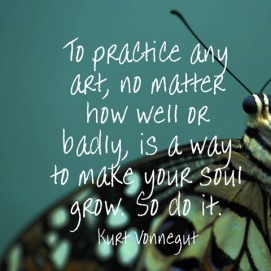new posts in all blogs
Viewing: Blog Posts Tagged with: working with dreams, Most Recent at Top [Help]
Results 1 - 17 of 17
How to use this Page
You are viewing the most recent posts tagged with the words: working with dreams in the JacketFlap blog reader. What is a tag? Think of a tag as a keyword or category label. Tags can both help you find posts on JacketFlap.com as well as provide an easy way for you to "remember" and classify posts for later recall. Try adding a tag yourself by clicking "Add a tag" below a post's header. Scroll down through the list of Recent Posts in the left column and click on a post title that sounds interesting. You can view all posts from a specific blog by clicking the Blog name in the right column, or you can click a 'More Posts from this Blog' link in any individual post.
By: frankramer,
on 11/19/2014
Blog:
(
Login to Add to MyJacketFlap)
JacketFlap tags:
dreams,
Uncategorized,
dream,
dream journal,
dreamwork,
healing dreams,
dream journaling,
working with dreams,
On Dreams,
benefits of remembering dreams,
Dreamwork Methods,
dream healing,
evaluating dreamwork,
lucid dream,
progress in dreamwork,
Add a tag
When my students do dreamwork (the recording and working with dreams to learn something from the dreams) on a regular basis, what I sometimes get asked is this: How do I know I am making progress in working with dreams?
This is a good question, because unless I am working with someone who knows a lot about dreamwork such as a dream mentor, the answers may not be all that apparent, especially in the beginning. However, in the long run, progress will definitely become more obvious because of the positive changes the dreamer will see in his or life.
Indicators of progress in dreamwork can be seen in the following:
- Dreams become more vivid and easier to remember. A beginner usually has difficulty remembering dreams. Just having the intention to remember dreams will often prompt the dreamer to remember his or her dreams. Need help in remembering dreams? See Tried and True Tips to Better Remember Your Dreams at http://wp.me/p45aiq-5B
- Dreams seem to “come” when one needs or wants them. Just making the intention to do regular dreamwork or participate in a dream class will often encourage the psyche to offer the dreamer a sudden outpouring of dreams.
- Discovering that dreams do respond to requests for information and wisdom with appropriate insights. Asking for a particular dream (Dream Incubation) and getting a helpful answer is truly empowering for the neophyte starting the study of dreams. It’s like meeting a powerful helper for the first time. This experience gives the dreamer confidence to ask for more help from dreams. For information on incubating a dream see Ask and You Shall Receive: Incubating a #Dream at http://wp.me/p45aiq-71
- Experiencing a lucid dream. A lucid dream is one in which the dreamer feels like he or she is awake and aware in the dream, all the while knowing it is a dream. Conscious choices can be made within the dream. One feels one can create the dream. Like dream incubation, this is an empowering to the dreamer. Lucid dreams can be also be requested for or intended in order to heal, problem solve or gain information.
- Experiencing healing, a solution or guidance in a dream or through information received in a dream.
- Discovering and evaluating what contributions dreams have made. After recording dreams for a significant period of time, one can go back and review dreams to find how they related to events and experiences in waking life during that time. This can be an eye-opening experience of discovery when one sees that many dreams do come true, show the processes and transformations one is going through in life, and support and nurture the dreamer from a deeper source.


By: frankramer,
on 11/12/2014
Blog:
(
Login to Add to MyJacketFlap)
JacketFlap tags:
dreams,
Uncategorized,
dream,
soul,
dream journal,
dreamwork,
dream journaling,
working with dreams,
benefits of remembering dreams,
Dreamwork Methods,
Polls on Intuition,
Dreams and visions,
Lissa Rankin,
loss of soul,
role of dreams in spirituality,
soul in dreams,
soul loss,
Add a tag
Do you feel out of touch with yourself? Do you feel that your culture is shallow and vapid? You are not alone. In 20 Diagnostic Signs That You’re Suffering From “Soul Loss,” Lissa Rankin, M.D., states that this is a very common malady in today’s world. She says not only individuals suffer from this but so do cultures. In my opinion, religions, and in particular, churches can also suffer from it. Whenever we, whether individually or collectively, have lost sight of what animates us, what makes us come alive or what drives us, we suffer from a form of soul loss.
Dreams and holding on to a dream are some keys to recover the soul’s enlivening power in our waking life. Dreams come from the soul itself and speak for the soul and its needs. It is no wonder that so many individuals suffer soul loss when they don’t value their dreams and don’t make an effort to remember them or work with them. Institutions lose soul when they lose sight of the founder’s vision or dream for that organization. This is particularly true of religions and churches which become social clubs or babysitting stations for kids when the ties to a deep spiritual connection have been broken or not promoted among the followers.
Therefore, a remedy for recovering from soul loss is studying about dreams, learning both how to work with them and learning from them:
Individually, this means keeping a dream journal and doing dreamwork on an on-going and consistent basis.
Collectively, this means studying and learning from the dreams and visions of the founders. Institutions can recapture their original dynamism by going back to the basics, to be once again inspired by the founders, learning what defined the organization and why it was started in the first place.
Dreams and visions are all about purposes of soul and how soul presents itself in the world. What is your true dream? In that you will find your true inspiration.


By: frankramer,
on 11/5/2014
Blog:
(
Login to Add to MyJacketFlap)
JacketFlap tags:
dreams,
Uncategorized,
spirituality,
bible,
dream,
Religion and Spirituality,
dreamwork,
working with dreams,
On Dreams,
Dreamwork Methods,
dreams in the bible,
dreamwork as spiritual methodology,
Joseph's dreams,
Add a tag

In Dreams: A Way to Listen to God Morton Kelsey says, “…the Church has developed no theory that can bring the spiritual world closer to human beings.” This is a powerful statement. One would think that it would be a primary function of Christian religions to do this. Instead, the mainline Christian churches have traditionally offered biblical and theological studies which provide intellectual and cultural understandings of Christianity, but have moved away from experiential forms of spirituality which might let us personally “taste and see” the glory of God. I think this is one reason so many people have left mainstream Christianity to explore yoga, meditation and other experiential approaches to connecting to something greater. Yet, as Kelsey points out in his book, dreams have always been part of the Judeo-Christian tradition, and he heartily recommends using them as a spiritual methodology to bring the spiritual world closer to us.
It’s not like the spiritual world isn’t trying to contact us. It does so nightly in our dreams! But how few people make an attempt to remember their dreams, and of those who do, how few make it a practice to honor, record, reflect and learn from their dreams?
One only has to pick up a Bible and see the frequent references to dreams and the important role they played in shaping people’s lives. People who could interpret dreams, like Joseph and Daniel, were held in high esteem because it was thought that God spoke through dreams. In the Bible, the information received in dreams is shown to be very important such as in predicting times of flood or famine or helping a person in need. Joseph, the husband of Mary, was one of many who received an important message in a dream. He was told to not worry in taking Mary as his wife since the child she had conceived came in a most unusual way. All these characters in the Bible worked with and let dreams shape their lives—even when their lives depended upon it.
Perhaps, if we let God into our lives through our dreams, our lives would take on a much greater meaning and significance compared to the trivial and myopic views we hold in an uninformed waking life that is often driven by the demands of others as well as egoistic and material needs.


By: frankramer,
on 10/28/2014
Blog:
(
Login to Add to MyJacketFlap)
JacketFlap tags:
Uncategorized,
dream,
insight,
dream journal,
recording dreams,
intuitive insight,
dreamwork,
dream journaling,
working with dreams,
On Dreams,
benefits of remembering dreams,
Dreamwork Methods,
insights from dreams,
Add a tag

Recording Dreams
Dreamwork is the practice of regularly recording and reflecting on one’s dream in a conscious and applied manner with the intention to learn from the wisdom of dreams. It is not an easy task. In fact, it is probably one of the most challenging projects a person could take on, and yet, possibly one of the most rewarding.
Freud said dreams were “the royal road to the Unconscious.” Connecting to dreams is a direct method to connect to the Unconscious, the deepest part of you. So if you want to really get to know yourself through and through, doing dreamwork is one of the best ways to do it.
By committing to dreamwork, you are giving permission to the Unconscious to inform your waking life, bringing new and often challenging insights into a consciousness that is often protected from this greater reality by a tough Ego that wants to be safe, secure and in control. Often, the interests of Ego and the interests of Unconscious are at odds. This means:
- You may experience conflicting values in situations where your ego has learned to adapt, appease, turn a blind eye or, conversely, be overly critical and your Unconscious is suggesting a bolder, risky or more loving response.
- You may be presented with information about a situation you would rather not know. Dreams often can see the bigger picture and give information you do not pick up in waking consciousness or they may portend events in the future that may be hard to accept.
- Dreams may show you how powerful you can be if you forgo your fears and act on your dreams. Dreams may show you doing things in dreamtime you are frightened to do in your waking life—but in dreamtime accomplish with ease, grace and sometimes with the help of angelic beings. This is why the phrase “If you can dream it, you can do it” is so true. It’s like the holographic prototype model has already been tested in dreamtime, proving to you it can work.
By committing to dreamwork, then, you are committing yourself to be open to another level of awareness that calls you to move beyond the constraints of Ego limitations and into a world of limitless possibilities. What can be more exciting than that?


By: frankramer,
on 10/14/2014
Blog:
(
Login to Add to MyJacketFlap)
JacketFlap tags:
dreams,
Uncategorized,
muse,
dream,
lover,
dream talent,
Dead Men Do Tell Tales,
characteristics of intuition,
dreamwork,
healing dreams,
working with dreams,
On Dreams,
benefits of remembering dreams,
Dreamwork Methods,
common dream theme,
dream lovers,
lover in a dream,
Add a tag
Meeting and possibly making love with a very attractive person in a dream is a quite common dream theme, no matter whether it is someone we know in waking life or a mysterious lover who only populates our dreams. In the dream, these encounters are often marked by passion, beauty, and wonder so vivid that upon waking we feel driven to act on the dream—no matter if the person is someone in waking life who is unavailable, a poor choice or someone we don’t know or haven’t even encountered yet!
The importance of the dream is not so much the person referred to but the energy that is evoked in the dream. Powerful energy does, indeed, need acting upon and that is what the dream is asking us to do. However, before going and doing something foolish or regrettable, the thing to remember is that the dream is all about the dreamer. That highly attractive and lovely soul you are encountering is perhaps an aspect of your own loveliness or quality, and it is that which is asking you to recognize in yourself!
Example:
In the dream you are falling for a writer who is physically attractive and highly competent as a writer. Before you go associating this person with someone you know who is a writer, you might ask yourself: Have you thought about becoming a writer? Do you have writing skills you haven’t developed? If so, this dream perhaps is telling you that the profession would be attractive to you and that you would be competent at it! It is like your muse inviting you to this possibility.
If you actually know a writer in waking life that you think this dream symbol represents, you may want to pursue the relationship in real life if the person is available emotionally or otherwise. That person may have a lot to teach you about writing and life itself. The good news is that if this person is a jerk in waking life, or is married with three kids, or you are married, you can still nurture that wonderful energy by recognizing that it is part of you—you can value it by learning about the craft of writing, starting writing, and getting feedback on your writing. Your love will blossom to fruition with the development of a whole new aspect of yourself and you will have avoided a possibly disastrous relationship!


By: frankramer,
on 10/7/2014
Blog:
(
Login to Add to MyJacketFlap)
JacketFlap tags:
Uncategorized,
father,
dream,
dad,
intuitive,
dreamwork,
working with dreams,
On Dreams,
Dreamwork Methods,
dream symbol,
dad in dreams,
dream dictionary,
dreaming of dad,
dreams of father,
father in dreams,
Add a tag

Dreaming of One’s Father
The appearance of the father in a dream is one that is loaded with significance because of the rich and deep associations, perhaps very negative or very positive, with our experience of having a father. My own long relationship with my father was one of the richest (full of ups and downs) and best and most supportive in my life so this week when I had the unusual occurrence of two dreams about him around the 8th anniversary of his death I decided to take a closer than usual look at this powerful dream symbol.
Look for Personal Associations
I first looked at my personal association the father symbol. Reflecting on this symbol made me realize first and foremost the supportive and caring association I had with my father. So his image in the dream represents for me caring and supportive energy that is near me now, even though he has passed.
Look for Conventional Associations
I next perused various dream dictionaries for the usual explanations of the symbol of the father. Depending on the dream dictionary, there were often many and varied meanings ranging from the father being a symbol of power, authority, and the law to being a harbinger indicating difficult times were coming and that one should seek wise advice.
Reflect More Deeply
When I research various meanings like this, I consider it a form of brainstorming. I am not ready to accept the answers I find at face value. I just want to see all the general associations with the father out there, perhaps coming across some I haven’t seen before. While doing this, I look for any of these to have a meaning that resonates with me, an association that might feel like it has a meaning tailored for me in my specific dream. I ran across one such meaning I hadn’t seen before and it resonated. A dream about the father, in Arabic and Islamic traditions, and found at http://dreamingthedreams.com/meanings/Father/ means help for a waking issue will come from sources one doesn’t anticipate.
Stick to the Feelings in and Generated by the Dream
This meaning was valid specifically for me because it connected the feelings in the dream and those generated by the dream with what has been going on in my life. In both dreams, my father was feeling confident and happy. He wasn’t trying to warn or help me, which means that part of me in the dream that is represented by my father is apparently happy and satisfied! This is odd because recently I have made a risky career choice my father wouldn’t necessarily have approved of when he was living, which is resulting in a situation where I need help but from sources I can’t imagine. I have tried all the usual solutions and sources I know of and none have yet worked; however, other dreams of mine indicated that help will come—even though the source was not revealed. When I read this last interpretation of help coming from unexpected sources, it tied all the meanings and feelings together and comforted me.


By: frankramer,
on 10/1/2014
Blog:
(
Login to Add to MyJacketFlap)
JacketFlap tags:
disrespect of self,
dreams,
Uncategorized,
dream,
intuitive,
self-respect,
self-destructive behavior,
negative behaviors,
intuitive insight,
Intuitive insights,
working with dreams,
On Intuition,
Intuitive Methods,
On Dreams,
benefits of remembering dreams,
Dreamwork Methods,
Meditation Methods,
dream healing,
Add a tag

Where Does Self-Respect Come From?
5 Signs You’re Not Respecting Yourself by Vironika Tugaleva is a good article about the negative behaviors that can pull us down, indicating that our self-esteem is plummeting. If these behaviors become habitual patterns they can be very self-destructive and undermine our relationships with other people.
Usually these behaviors manifest because, for any number of reasons, we are not in touch with our true self, and so don’t respect who we are. Dreamwork and accessing intuitive insight are great tools that can counteract any tendency to disrespect ourselves because the on-going practice of these exercises can lead to a healthy awareness of who we truly and uniquely are at the deepest emotional and spiritual levels. These exercises tap us into the root of our being and nourish us with information that gives the bigger picture, the grander vision and the substance of things. They can also give us specific answers to problems and concerns we may have. Instead of being buffeted around by the questionable and often enslaving pressures and opinions of those around us, we are fed by healing truths that are custom made for each of us in a way that meets the problem at hand while preserving our innate goodness and integrity. The end result is that we can behave in a manner that is worthy of respect, both from others and from ourselves!
Example: When I start to feel jealous of someone’s life, thinking it is better than mine, I can ask for a dream will give me guidance on how I can get more out of my own life, being very specific in the questioning to indicate what makes me jealous of someone else and what I might need to fulfill my own life. Asking for a dream to help resolve an issue is called incubating a dream (Ask and You Shall Receive: Incubating a Dream), and it can become one way to work through an issue.
The same can be done by an intuitive meditation such as the Inspired Heart™ Meditation. Prior to doing the meditation I can ask for insight to come. During the meditation I observe the breath and quiet the mind. I then make a heart connection, and receive the insight that comes.
No matter if I work with a dream or in a meditation, the occasion may become a turning point in my life that encourages me to face my feelings, and work towards resolving my issues based on information I have received from a profound inner source and not someone’s opinion or outside pressure. With regular practice I will find that such empowerment will lead to a healthy self-respect. I will come to experience that I am a Child of God, fed and cared for by divine sources, and placed on this earth for an important purpose that only I can serve. What better basis for self-respect can there be?


By: frankramer,
on 10/1/2014
Blog:
(
Login to Add to MyJacketFlap)
JacketFlap tags:
dreams,
Uncategorized,
dream,
intuitive,
self-respect,
self-destructive behavior,
negative behaviors,
intuitive insight,
Intuitive insights,
working with dreams,
On Intuition,
Intuitive Methods,
On Dreams,
benefits of remembering dreams,
Dreamwork Methods,
Meditation Methods,
dream healing,
disrespect of self,
Add a tag

Where Does Self-Respect Come From?
5 Signs You’re Not Respecting Yourself by Vironika Tugaleva is a good article about the negative behaviors that can pull us down, indicating that our self-esteem is plummeting. If these behaviors become habitual patterns they can be very self-destructive and undermine our relationships with other people.
Usually these behaviors manifest because, for any number of reasons, we are not in touch with our true self, and so don’t respect who we are. Dreamwork and accessing intuitive insight are great tools that can counteract any tendency to disrespect ourselves because the on-going practice of these exercises can lead to a healthy awareness of who we truly and uniquely are at the deepest emotional and spiritual levels. These exercises tap us into the root of our being and nourish us with information that gives the bigger picture, the grander vision and the substance of things. They can also give us specific answers to problems and concerns we may have. Instead of being buffeted around by the questionable and often enslaving pressures and opinions of those around us, we are fed by healing truths that are custom made for each of us in a way that meets the problem at hand while preserving our innate goodness and integrity. The end result is that we can behave in a manner that is worthy of respect, both from others and from ourselves!
Example: When I start to feel jealous of someone’s life, thinking it is better than mine, I can ask for a dream will give me guidance on how I can get more out of my own life, being very specific in the questioning to indicate what makes me jealous of someone else and what I might need to fulfill my own life. Asking for a dream to help resolve an issue is called incubating a dream (Ask and You Shall Receive: Incubating a Dream), and it can become one way to work through an issue.
The same can be done by an intuitive meditation such as the Inspired Heart™ Meditation. Prior to doing the meditation I can ask for insight to come. During the meditation I observe the breath and quiet the mind. I then make a heart connection, and receive the insight that comes.
No matter if I work with a dream or in a meditation, the occasion may become a turning point in my life that encourages me to face my feelings, and work towards resolving my issues based on information I have received from a profound inner source and not someone’s opinion or outside pressure. With regular practice I will find that such empowerment will lead to a healthy self-respect. I will come to experience that I am a Child of God, fed and cared for by divine sources, and placed on this earth for an important purpose that only I can serve. What better basis for self-respect can there be?


By: frankramer,
on 9/24/2014
Blog:
(
Login to Add to MyJacketFlap)
JacketFlap tags:
discussing dreams,
dreamwork,
working with dreams,
On Dreams,
Dreamwork Methods,
dream symbolism,
dream is about the dreamer,
awakening of consciousness in dreams,
dream information,
energy in dreams,
dreams,
Add a tag
Chances are someone told you, “I had a dream about you.” All of us dream during sleep and we often dream about people we know personally. Since many people remember their dreams, they may mention a dream about you, even if it is weird, sexual or frightening. In these cases, the dream conversation can be unsettling to both the dreamer and the one dreamed about. For example, let’s say that Tom is a project manager who supervises a technician named Raymond on a big project. Tom has the following dream which he relates to Raymond:
Tom sees Raymond wearing Superman’s attire and flying over tall buildings.
Responding to Dream Information
On hearing this dream, Raymond, on one hand, feels happy about the dream because it seems to reflect that his boss holds him in high esteem, feeling he can do anything. On the other hand, it makes Raymond uneasy because they both are about to start a really challenging project, and Raymond wonders if he can live up to his supervisor’s unrealistic imagery of his abilities. If Raymond is interested in pursuing this remark to get better insight into his boss and their relationship, he might say something like, “It sounds like you think I am very capable. Thanks for your confidence in me. While I always try to do my best, remember I’m not Superman. ” That’s probably as far as most people would take the conversation. Added insight can be gained, however, if the person being dreamed about understands:
- You Can’t Interpret Another Person’s Dream
- The Dream is About the Dreamer
- The Dream Has Many Levels of Meaning
Raymond needs to understand that you can’t interpret another person’s dream. The dream is about the dreamer, in this case Tom. The key to understanding the dream is to understand what Raymond means to Tom, and if Tom isn’t willing to share this perception, Raymond really can’t know the real or full meaning. Raymond may get clarification on the dream by asking, “Do you really have such a high opinion of what I can do?”
While the dream may mean that Tom does have a high opinion of his technician, Raymond, and thinks he can tackle many tasks; however, on a deeper level, it may also mean that Tom has been feeling uncertain about tasks he needs to accomplish and he is using Raymond’s abilities as the standard for excellence. At a still deeper level, and taking the dreamwork method of all things in the dream are part of the dreamer, the dream may also symbolize some issue or new awareness that only belongs to Tom, having little to do with Raymond personally. Perhaps Tom realizes he is getting better at tackling the technical aspects of his own job. Tom’s perception of Raymond may have been the catalyst to awaken this new and powerful energy within himself! By comparing himself to his able employee, Tom realizes he, too, can soar.
So while Raymond may take his supervisor’s dream as a compliment, Raymond should not make too much of his supervisor’s dream in thinking it pertains just to him. More than likely, it also has to do with something new happening within Tom, and if Raymond is sharp he will be on the lookout to see changes in his boss.


By: frankramer,
on 9/17/2014
Blog:
(
Login to Add to MyJacketFlap)
JacketFlap tags:
dreams,
Uncategorized,
Henry Reed,
the dreamer,
Edgar Cayce,
dreamwork,
working with dreams,
On Dreams,
Dreamwork Methods,
dream healing,
intuitive healing,
dream incubation,
dream experts,
helping another,
Add a tag

Dreaming for Another
It is often said by dream experts that the dream is all about the dreamer so when we work with a dream we use methods that help the dreamer see each part of the dream as being a part of herself or himself. When this is done and the dream is worked through, the dreamer receives gifts of insight, solution and healing. If I can help myself through my dreams, can I use them to help other people—even though they are about me?
The answer is a definite “Yes!” In fact, studies done by Henry Reed, Ph.D. of the Edgar Cayce Institute for Intuitive Studies have shown that dreams are very effective when they are intended to help another person. Dr. Reed has even demonstrated in The Dream Helper Ceremony that a group of dreamers can intend to have a dream that will help a member of their group—and can even do so without that member even conveying the nature of his or her issue! The group of dreamers report dreams that can give more helpful information, often diagnose the issue, or possibly provide a solution for the member seeking help. These dreams also, at the same time, offer an important message solely for the person who dreamed the dream. On doing this exercise in my dream classes I found the same results among the class participants.
Why? It seems that empathy is at work here on the part of the dreamer. The intuitive dreaming mind is naturally, and all along, creating problem-solving solutions for the dreamer. This is its nature. In order to keep helping the dreamer and to answer the request to help another, the dreaming mind apparently creatively comes up with a dream scenario that will match the needs of both the dreamer and person being dreamed for. The dreaming mind thus intuits both the needs of the dreamer and the person being dreamed for! So, don’t be shy. Ask for a dream (Dream Incubation) that will not only help you with an issue but will help someone you know who has a problem.


By: frankramer,
on 9/10/2014
Blog:
(
Login to Add to MyJacketFlap)
JacketFlap tags:
Edgar Cayce,
dream journaling,
working with dreams,
Déjà vu,
On Dreams,
benefits of remembering dreams,
Dreamwork Methods,
dreamtime,
foreknowledge,
waking reality,
You only live twice,
dreams,
Uncategorized,
dream,
foreshadowing,
experience,
Add a tag

Déjà vu: How could I be here before?
, the experience of already having seen something or visited someplace, is a common experience that modern science cannot explain. For example, I might be traveling in a foreign country, visiting a famous place like the Great Wall of China for the first time. All of sudden I get the feeling I have been here and this place is familiar.
After nearly forty years of recording my dreams, and having so many dreams of being in strange places and meeting new people that become manifest in waking life, I am almost convinced déjà vu is an experience of remembering something or someplace previously seen in dreamtime, and the memory surfaces from the long-forgotten, or possibly never-remembered dream when waking reality mimics the earlier experience in dreamtime. I was first made aware of this dual reality when I was in college and had a dream just after my roommate became engaged.
Dream:
I dream of attending my college roommate’s wedding in a white church I didn’t recognize in waking life. The dream is vivid and clear in every detail, especially the completely white color of church exterior, the unusual reddish brown design inside the church and the fact that I am taken to the church in the groom’s parents’ white car, sitting in the right rear seat.
On waking I completely forgot about the dream because I wasn’t in the habit of recording my dreams at this stage of my life. When the day of the wedding arrived approximately six months later, and we were about to go to the church, I was told to ride in the groom’s parents’ white car. As I looked at the car, I suddenly I recalled the dream and remembered I had seen this before, been here and done this! I got goose bumps. Reality then played out according to my dream. I was told to sit in the right backseat, exactly where I was in the dream. On the way to the church I suspected the church would be all white on the outside and inside would have that unusual reddish brown design. And sure enough, it did.
Déjà vu suggests a Similar Dreamtime and Waking Reality
Edgar Cayce and others have stated that in dreamtime we get a foreshadowing of all the important events in our life before they become manifest in waking life. It is in dreamtime where we make choices that may eventually play out in waking time because dreamtime puts us into the future to prepare the way for us. That is one reason why Casey is quoted as saying “Dreams are today’s answers to tomorrow’s questions.” It’s like we are given a trial run. If we are dream-aware, we can make use of this test case scenario. If not, it’s as if we are programmed to follow through with the same decision in waking life as we made in dreamtime.
Living Twice in this Life
This concept of living our life twice, in dreamtime and waking time, is hinted at in popular culture with the James Bond theme song sung by Nancy Sinatra,
“You only live twice or so it seems
One life for yourself and one for your dreams.”
While some may interpret this to mean we live two different lives, one in our dreams (perhaps daydreams) and one in waking life, and these realities might not necessarily match in quality or enjoyment, my experience indicates that night dreams pretty well do match waking life—unless I consciously NOT make a decision I made in dreamtime because I didn’t like the outcome I saw in the dream. However, this type of decision-making requires knowing what was dreamed about and remembering it, perhaps many years after the dream! To me, this is what is meant by getting answers about the future from the dream. If you liked the outcome of your choice in dreamtime, go with it. If not, make another choice.
So the next time you experience déjà vu, consider that you may have passed this way before—in your dreams, and your dreams were preparing you for this experience.


By: frankramer,
on 9/3/2014
Blog:
(
Login to Add to MyJacketFlap)
JacketFlap tags:
dreams,
Uncategorized,
dreamwork,
working with dreams,
On Dreams,
Dreamwork Methods,
dream is about the dreamer,
Fritz Perls,
meanings of dreams,
Add a tag

A Dream Scene: Hopes Rising or a Plane Taking Off?
In working with dreams, there are two common misleading inclinations most people have: they tend to see events in dreams to be literally true or to view them as happening outside the dreamer as actual events in waking life. Perhaps this is because many people tend to find ultimate meaning outside themselves rather than looking within for the answers. Here is an example:
Dream: I am in a plane that is taking off from a bumpy runway. The plane is bouncing around and it makes me nervous.
In this case, the dreamer might think the dream refers to a plane ride he might be taking tomorrow or sometime in the future and the takeoff could be hazardous. While that might be one possible interpretation, leaving it there without further reflection will quite often miss the mark, losing a much more important meaning of the dream altogether.
One of the major milestones for dreamworkers in learning about dreams is to realize that the dream is about the dreamer and what is going on within the dreamer. That is why dreams have been called the Royal Road to the Unconscious. Genuine dreamwork takes us on this royal road. It provides ways to understand and nurture a deeper relationship with one’s own Self. Fortunately, nowadays, dreamwork methods have been developed to help us mine the hidden meanings of dreams which pertain to what is happening within the Unconscious regions the dreamer. One of these established methods for working with dreams is Fritz Perls’ approach of viewing everything in the dream as part of the dreamer.
How to Work with the Dream as if it was “All About Me”
In this approach, I would work with the dream about a plane taking off from a bumpy runway as follows: I would ask myself what part of me represents the plane, what part represents the runway, and what is “bouncing around” in my life? I might associate the plane with my hopes for a new project that is taking off in my life, I might associate the bumpy runway with the bumpy start of the project and the “bouncing around” may stand for my feelings about the whole affair. In this case, my unsteady feelings are challenging the hopes for something developing in my life. For me to move forward in a healthy manner, perhaps the dream is helping me by warning me that I need to pay attention to this project and to my feelings about it—or a disaster could result and I may have many regrets about being part of the project. The dream, then, is calling my attention to a real problem in my waking life right now and not some possible future development. It is saying that within me there is a growing unease about this project.
Sometimes dreams do concern events outside the dreamer but most of the time my experience has been that dreams are always about the dreamer so while dreams may pertain to outside events, they also suggest a parallel metaphor within the dreamer—and this issue is often the difficult one to deal with, and the one most overlooked by the dreamer.


By: frankramer,
on 8/27/2014
Blog:
(
Login to Add to MyJacketFlap)
JacketFlap tags:
dreams,
Uncategorized,
dream,
Healing,
health information,
dream journal,
healing dreams,
dream journaling,
working with dreams,
On Dreams,
benefits of remembering dreams,
Dreamwork Methods,
dream healing,
asclepion,
Asclepius,
health benefits of dream journaling,
caduceus,
Rod of Asclepius,
Add a tag

Caduceus: The Healing Rod of Asclepius
With nearly 40 years of dreamwork experience, one thing I can say for certain about my dreams is that the archetypal energy of healing at all levels, spiritual, psychological and physical has been expressed in myriad symbols, processes and themes, indicating to me that the primary purpose of dreams is to heal and make whole.
The Benefits of Working with Dreams to Heal
Learning to recognize when and how healing is at work within is a fascinating aspect of the study of dreams. It was one of the first benefits I clearly saw from keeping a dream journal. (See my blog 6 Health Related Benefits of Keeping a #Dream Journal.) As I grew more adept at working with dreams, I learned that they could be used to diagnose, treat and monitor the progress of any kind of ailment. Over the years, I learned to request information about a piece of health information prior to getting the specific lab results to verify the accuracy of that test. I have found my dreams to be up to this point in time 100% accurate and I have been doing this for more than ten years. And last but not least, I saw healings take place within my dreams which then manifested in my body.
How to Become Adept at Working with Health-Related Dreams
If you want to become adept at exploring your health from the dream perspective, do the following:
- Keep a dream journal and be faithful in recording all the dreams you can remember, even the most minor and insignificant. Many years ago I had an obscure “one-liner” dream which conveyed the cryptic message, “Everyone is working to develop a method of self-healing.” I knew nothing of what this meant at the time but many years later, I saw it would become one the main purposes of my life, and “everyone” referred to all aspects of me!
- Read the groundbreaking book by Patricia Garfield, Ph.D., The Healing Power of Dreams, which gives researched information on how symbols occurring in dreams relate to the body and its state of health. She gives many of the commonly occurring symbols for health in dreams.
- In addition the to common symbols for health and healing; learn your personal dream vocabulary. (See Recognizing Your Personal Dream Vocabulary.) What are your unique symbols for health, healing and healers that appear in your dreams?
- Notice and reflect on all images, processes and symbols relating to health, the medical field, therapists and healers. What are they telling you?
- Learn to request specific health information from dreams (Dream Incubation.) (See Ask and You Shall Receive: Incubating a #Dream.) For example, ask what particular foods do you need to eat to get healthier?
- Request healings to come in dreams.
- Test your dream findings with your medical lab tests or a doctor’s diagnosis. If your dream tells you one thing, and a doctor another, get a second opinion.
Many doctors now are beginning to see the helpfulness of dreams in staying healthy. My doctor always takes my health dreams seriously and so should yours! Hippocrates, the father of modern medicine, is said to have learned about the value of dreams and their relationship to health at an asclepion, an ancient type of hospital which was dedicated to the god of healing, Asclepius. The caduceus, the symbol of medicine which comes to us from this ancient era, depicts snakes wrapped around the rod of Asclepius.


By: frankramer,
on 8/6/2014
Blog:
(
Login to Add to MyJacketFlap)
JacketFlap tags:
dreams,
Uncategorized,
dream,
identity,
symbol,
Edgar Cayce,
dreamwork,
healing dreams,
working with dreams,
On Dreams,
Dreamwork Methods,
dream symbol,
dream symbols,
loss of identity,
Add a tag

Passing Through a Tight Place
One of the messages that Edgar Cayce had to say about dreams is that they point out the difference between how my higher self sees me and how my ego self sees me. Dreams are always trying to get us to let go of ego and grow into our higher selves.
Nightmares are often caused by this clash between these two parts in each of us. The ego just doesn’t want to let go to that higher self and the results show in fear, anger or depression!
Loss of identity dreams especially seem to be related to this issue of ego letting go. When we worry too much about things like money, status, job opportunities and people loving us, “loss of identity” dreams often kick in, reminding us that there is more to us than our ego identity.
How we think of ourselves is something that seems to be very important in dreamtime. I say this because so many of my dreams and those of my friends, students and colleagues who have shared their dreams with me note the theme of personal identity, or the loss of it, showing up in dreams—especially when we come to recognize our unique symbols or the commonly occurring symbols for this event.
I have to admit it was a long time before I recognized the symbol for what it meant in my dreams, even though I had the dream repeatedly over many years. In the dream I would lose my purse or have it stolen, usually by a bunch of bratty kids. I was aware enough to realize these nightmares usually occurred when I was worried about finances so I just assumed that’s all there was to it. Having the dream repeat over a period of time should have clued me in that I didn’t fully understand or appreciate the dream. Here is a typical dream:
Dream:
I go through a tight place but make it through. I realize I don’t have my purse. I go back to the tight place and see a lot of women have left their purses here going through this tight place.
Reflection:
Going through a tight place evokes the feeling of going through the birth canal, the transition to a new level of being or awareness. At the time of this dream I was just about to undergo a major spiritual event, a kundalini awakening. After doing this, I would realize I don’t have my purse. At the time, I had just come into an inheritance so money wasn’t an issue. So what did the purse mean? Sandra A. Thomson in Cloud Nine: A Dreamer’s Dictionary notes that it is related to identity. The purse holds one’s identity in the form of ID cards such as a driver’s license or passport. Going through such a major transition would cause me to lose the way I look at myself, my identity—which indeed happened to an enormous degree. The kundalini awakening had me undergo such physical, emotional and spiritual changes that I no longer recognized my “old self” on any of these dimensions. However, eventually I was led to experience the fact that at the core I am a being of energy and light, able to receive and transmit healing energy. I was being transformed. What a new spiritual identity! The dream was telling me that it wasn’t just me but there are many other women who experience this loss of identity when undergoing major transitions. The many women could be other women or other parts of myself. As it turned out, I ended up making many changes which totally changed my waking life identity as well. I left my career in IT consulting, moved to Hawaii, and became a writer, educator and life coach.


By: frankramer,
on 7/30/2014
Blog:
(
Login to Add to MyJacketFlap)
JacketFlap tags:
dream healing,
dreams,
Uncategorized,
Healing,
creative,
intuition,
dreamwork,
healing dreams,
working with dreams,
On Dreams,
Dreamwork Methods,
Add a tag

A Pick from the Healing Dream Garden
After working with dreams for nearly forty years, I know that even the worst nightmares contain a kernel of hope or healing. The following nightmare took me a long time to understand. I had several repeats until it finally “hit” me what this dream offered as its healing insight. The dream took a while to sink in perhaps because it chose as the motif of one of my greatest fears: hitting a person while driving. To make things worse, in the dream the feeling of hitting a person was so realistic—as if it really did happen.
Dream
I am driving very slowly because I sense some danger. Then, a group of kids surges in from the left. I see a young boy of 4 or 5 years old either fall or lunge into the left front of my car. Although I slam on the breaks, I hear the thud of something hitting my car. A shock wave of raw realization explodes from my chest as the force of emergency breaking flips the car on its side, throwing me on to the ground.
Stunned, I jump up and grab the child my car struck, looking for injuries. He has a little welt on the right side of his forehead, but otherwise seems well. A huge sigh of relief surges through me and I embrace him in my arms. I see his mother, the other kids and his father at a distance. Oddly enough, they just look at me and smile. They do not seem to be worried so much about the child as about me. Somehow, I know that they won’t take this matter to the police.
On waking the first impulse was huge relief from the realization that this was just a dream! Then, the fear arose that this might be an event which will happen in the future because so many of my dreams, especially the realistic ones, often manifest in the material world just as I dreamed them. I reviewed the dream, looking for clues to indicate this wasn’t such a prophetic dream. While the dream was extremely realistic, especially the feeling I had when hitting the child, there were elements that seemed symbolic. For example, I noticed that in the dream my car was red. I don’t own a red car and probably wouldn’t buy one since I find the color too intense to look at for long periods of time. So I decided that this dream wasn’t prophetic of actually hitting a real child and left the dream alone.
For a long while, and after several repetitive dreams which clearly were begging for attention, I finally summoned the courage to look at this dream. I chose to use the dreamwork paradigm of everything in the dream as being a part of myself. The young boy in the dream, because he was male, represented something work related, and because he was young, represented creative potential that was still developing. The age of the boy indicated a work related project that has gone on 4 or 5 years. I thought of my creative and meaningful work in teaching dreams which had gone on for about 4 or 5 years. A sinking feeling in me told me I was hitting on the correct interpretation. At the time, I indeed felt like this child of my creative labors had taken a hit, not by anything deliberate on my part but just because of the choices I felt compelled to make as I tried to earn a living. Each time I had this dream of hitting a child, I was considering putting my major efforts and energy into taking a well-paying but less than desirable job that would meet my financial needs. However, in doing so, I would endanger the growth of this child. The guilt, grief, and horror were rising to consciousness. Fortunately, the kid’s parents, perhaps representing my higher self, were telling me not worry. They understood. Indeed, when reflecting on this dream while still in bed, a voice from my intuition said in a gentle but informative way, “Don’t make a big deal of this!” Just getting this message provided an odd counter balance to the guilt, grief and horror.
While the child took a minor hit, it was OK. After I felt the child was safe and comforted, I wondered how I would upturn my car to get on my way again. Now, the real problem was how to get back on track after such a near disaster.
Since then, I noticed that every time I considered taking a paying job rather than taking the financial risk of continuing to do the creative but less financially reliable work of writing, teaching and life coaching, this dream of either hitting or nearly hitting a child would repeat itself. My dreams were telling to trust more and continue to nourish and not endanger the creativity within me. Later, as if to confirm my interpretation, I dreamed of three children telling me they want to take me some place I considered special. It gave me hope and made me realize that failing to nurture my creative endeavors would be as traumatic as hitting a child.


By: frankramer,
on 7/23/2014
Blog:
(
Login to Add to MyJacketFlap)
JacketFlap tags:
dreams,
Uncategorized,
dream,
healing dreams,
working with dreams,
On Dreams,
Dreamwork Methods,
dream healing,
the Healing Dream Garden,
Add a tag

A Pick from the Healing Dream Garden
Background:
Several years ago, after taking a five-year hiatus from full-time work, I felt I was ready to return to work. Going back to work later in life is not easy, but in my case I have been blessed with terrific energy, motivation and good health and so I wasn’t worried about that.
At this stage, however, I was not ready to grab the first thing that came along. Obviously after 37 years of working, there are many jobs that have the “been there and done that” or “at my age, I don’t need to do that…” feel to them. Hopefully, over the years I have learned to work smarter and could apply any experience I’ve gleaned by choosing, getting and keeping a suitable job. When I applied for several significant jobs, I was well received in job interviews and knew I could eventually land the one I best suited for me.
My psyche must have been preparing me for this event because I had some powerful dreams which seemed to be work related, expressing my anxieties about what to do, being up to working full-time again and the effects of my efforts to go back to work but some were telling me that the prospect of working would not be a problem. Here is one of them.
Dream:
I own a large house (not the actual one I was living in at the time of the dream.) A young, healthy worker comes in the house and says he wants a room to live in. I say OK, and tell him he can take the right front bedroom. Before I know it, there are two other young, strapping men just like him who are living in the room. I go over to investigate and find the number of workers has jumped to about 20. It was really a full house—full of all the workers. I tell one man to write down their names so I can keep track of them. He does. I notice that the room has suddenly expanded to look like the inside of factory. Something in me wonders if this is really still my house?
Reflecting on this dream using the dreamwork method that everything in the dream represents a part of myself, I could see that the house was my psychic home, and that the men (who usually in my dreams represent work-related issues) were energetic, healthy and ready to work. They just needed a place to stay. I found the dream comforting, letting me know I had the energy of much ready “manpower.” But something in me asked, “Is this really me? Do I want all these men here? Is this my responsibility?” The dream raised more questions than answered them but I knew I was capable of working. The real issue might be found in limiting the amount of work I take on. The dream gave me confidence.


By: frankramer,
on 2/11/2014
Blog:
(
Login to Add to MyJacketFlap)
JacketFlap tags:
Ashlynn Acosta,
Dead Men Do Tell Tales,
dream coach,
Dream Helper Ceremony,
dreams,
coach,
dream work,
intention,
dreamwork,
Intuitive insights,
Maeve Merton,
tasks of a dream coach,
working with dreams,
mentor,
dream talent,
dream journaling,
dream mentor,
Add a tag

Ashlynn Acosta with her Dream Mentor, Maeve Merton
A dream mentor is very much like a midwife, but instead of helping the mother birth a new person into the world, the dream mentor supports the dreamer who is like a mother birthing of a new consciousness into awareness and action. Dreamwork, when done with the help of an experienced mentor, is an intentional exercise used to facilitate the process, much like a midwife would instruct the laboring woman to breath or sit in a position that will help the birthing process along.
A dream is a symbol for a new awareness waiting to take on life, and it is the role of the mentor to not create the new awareness but just to help it along. Dream mentoring is basically a helping and facilitating role, not a directing role. It is guided by nature’s way of bringing new awareness into our waking world.
Towards this end a good dream mentor will prepare the dreamer to give birth to new consciousness by coaching the dreamer:
- To record and remember dreams. For many people, just making the intention to do these two things is a major step in a new direction and often prompts the dreamer to remember his or her dreams. Following through on the choice alone quite often helps people to become more aware of their dreams.
- To work with dreams through various kinds of processes such as association, storytelling, improvisation, and re-enactment.
- To proactively seek solutions for problems and concerns through dream incubation and lucid dreaming. Instead of just waiting for an answer from a dream, the dreamer can request a specific answer from a dream by asking to have a dream that will provide the answer. Writing the dream down and making the intention the night before helps a great deal to get a good result.
- To work in a dream group whereby members can help each other with their dreams or can dream for each other such as is done in Henry Reed’s Dream Helper Ceremony.
For an example of how a dream mentor works, please read or have your children read Dead Men Do Tell Tales, a teen mystery novel. In the story thirteen-year-old Ashlynn Acosta learns how to work with dreams from a dream mentor, Maeve Merton. With this assistance she learns to turn nightmares into problem solving tools, heals grief and helps save a friend suspected of a murder. She has learned skills that will help her for life and set her above her peers in accessing an important inner resource that can be relied upon in time of crisis.






















Hi Fran,
This post makes much sense to me. Years ago, I used to have many nightmares of men chasing me. When they did catch up with me, there was often a threat of violence with either a gun or a knife being aimed at me. Once or twice I was shot in the dream, waking up at that moment horrified.
In the midst of working with an analyst, the dreams slowly started to change becoming more benign and eventually I began to have very loving dreams with my dream men.
Debra
Thank you for your sharing. I posted the comment minus a last sentence which I thought was for me only. If you want me to not post your comment as is I will take it down completely. Many of my dream experiences with men other than my father were so worked related and often were tied in with how well I was treated by men on the job!
That’s fine Fran. Whatever you think is appropriate.
Thank you.
Debra